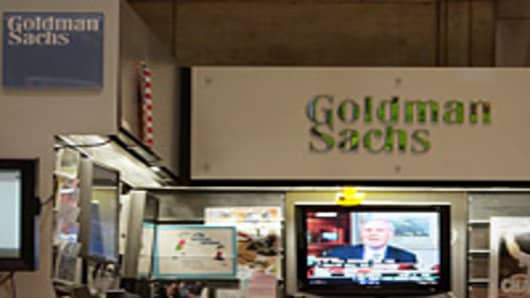Goldman Sachs scored a major victory in its legal battle with the Securities and Exchange Commission today, despite agreeing to pay a record-setting fine of $550 million.
The SEC is painting the case as a victory for the government, touting the fine and the fact that Goldman admitted to omitting important information from the marketing materials for the Abacus subprime mortgage derivative products it sold in 2007.
But that settlement is far smaller than the $1 billion many expected.
More importantly, Goldman avoided the fraud allegations it feared the most. The one misdeed it to which it confessed—omitting the role of hedge fund manager John Paulson in selecting the securities that went into the synthetic collateralized debt obligation at the heart of the case—is the least damaging in terms of Goldman’s reputation and future legal liability.
In its original complaint, the SEC had accused Goldman of violating Section 10(b) of the Exchange Act and Section 17(a) of the Securities Act. Both are anti-fraud provisions. Like most anti-fraud statutes, Section 10(b) requires the government to prove a fraudulent intent. The first subsection of Section 17(a) also requires proof of fraudulent intent.
But the second and third subsections of 17(a) do not require any proof of intent to defraud.
This makes accusations based on the second and third subsections much easier to prove—and perhaps easier for Goldman to stomach.
In fact, subsection 17(a)(2) does not even employ any form of the word “fraud” or “deceit.” It makes the sale of a security or a derivative unlawful if a material omission renders the sale merely “misleading.” That seems to be what Goldman has admitted to doing in the settlement.
All references to violations of Section 10(b) of the Exchange Act were dropped.
Sources have told CNBC that this allegation of misleading by omission was far more palatable to the Goldman because it does not explicitly implicate Goldman in fraud.
Importantly, most federal courts hold that violations of Section 17(a) of the Securities Act do not give rise to private actions by outside investors.
This means that paying a fine and making this omission will not necessarily give ammunition to plaintiff’s lawyers who are suing Goldman in separate lawsuits.
Although you will never hear them admit it, somewhere Goldman’s lawyers and executives are probably popping the cork on a bottle of bubbly.
This settlement was a win for them.



